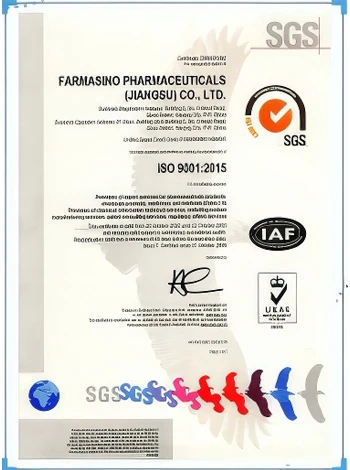



The Medical Uses and Benefits of Chlorine Dioxide as a Treatment Option
Chlorine Dioxide as Medicine An Overview
Chlorine dioxide (ClO2) is a chemical compound that has garnered attention in recent years, primarily for its controversial use as a potential medicinal agent. Originally developed for use as a disinfectant and water treatment solution, chlorine dioxide's ability to kill bacteria, viruses, and other pathogens has led some to explore its therapeutic potential. However, the conversation surrounding its use in medicine is fraught with scientific, ethical, and regulatory complexities.
Understanding Chlorine Dioxide
Chlorine dioxide is a yellow-green gas at room temperature and is most commonly used for its potent oxidizing properties. In industrial settings, it is widely employed for water purification, bleaching, and disinfection purposes. Its efficacy against a broad range of microbes makes it an attractive option for sanitation processes. However, its use in clinical settings remains contentious.
The interest in chlorine dioxide as a potential medical treatment peaked with the advent of dubious products marketed under names like Miracle Mineral Solution (MMS). These products claim to cure a myriad of ailments, including COVID-19, cancer, and other serious diseases. The solutions typically consist of chlorine dioxide diluted in water, often in concentrations that are unsafe for human consumption.
Scientific Background and Mechanism of Action
Chlorine dioxide functions by disrupting cellular processes in microorganisms, effectively killing them through oxidative stress. It alters cell membranes and denatures proteins, leading to the destruction of pathogenic cells. However, the same mechanisms that eliminate pathogens can also pose risks to human health. The body’s cells are not immune to oxidative damage, and exposure to chlorine dioxide can have detrimental effects, including irritation of the respiratory tract, skin, and eyes, as well as potential long-term organ damage.
Current Medical Applications and Research
chlorine dioxide as medicine

Typically, mainstream medicine does not recognize chlorine dioxide as a therapeutic agent. The U.S. Food and Drug Administration (FDA) has issued strong warnings against the consumption of chlorine dioxide products, citing serious health risks. Similarly, the World Health Organization and other health authorities have classified these substances as unsafe, stating that there is no scientific evidence to support their medicinal benefits.
Clinical studies investigating chlorine dioxide's efficacy in treating specific conditions are limited and often lack rigorous methodological standards. Some preliminary research has suggested that chlorine dioxide can effectively disinfect surfaces and materials and may hold promise in controlling infections in certain clinical environments. However, these uses do not equate to safe or approved human therapeutic applications.
Ethical and Regulatory Considerations
The promotion of chlorine dioxide as a medicinal solution raises significant ethical and regulatory issues. Consumers may be drawn to these products by desperate hopes for cures to serious conditions, especially during health crises like the COVID-19 pandemic. Misinformation can have dire consequences; individuals may choose unproven treatments over scientifically validated therapies.
Regulatory bodies worldwide are advocating for greater public awareness and education on the risks associated with ingesting chlorine dioxide. The emphasis is placed on evidence-based medicine, dissuading the use of unregulated substances that can endanger lives.
Conclusion Caution and Awareness
While chlorine dioxide is an effective disinfectant and has legitimate uses in public health and sanitation, its promotion as a therapeutic agent is not supported by credible scientific evidence. The potential benefits do not outweigh the risks associated with its use in humans. Individuals seeking treatment for medical conditions should rely on therapies that have undergone rigorous testing and received approval from relevant health authorities.
As with any emerging substance or treatment, it is vital to approach claims with skepticism and prioritize scientific integrity and safety. Public health campaigns should focus on educating the community about the dangers of unverified treatments and emphasizing the importance of consulting qualified medical professionals for health concerns. Chlorine dioxide, while effective in certain contexts, remains unsuitable for medicinal purposes, underscoring the need for ongoing vigilance in health information dissemination.
-
Why Sodium Persulfate Is Everywhere NowNewsJul.07,2025
-
Why Polyacrylamide Is in High DemandNewsJul.07,2025
-
Understanding Paint Chemicals and Their ApplicationsNewsJul.07,2025
-
Smart Use Of Mining ChemicalsNewsJul.07,2025
-
Practical Uses of Potassium MonopersulfateNewsJul.07,2025
-
Agrochemicals In Real FarmingNewsJul.07,2025
-
Sodium Chlorite Hot UsesNewsJul.01,2025










